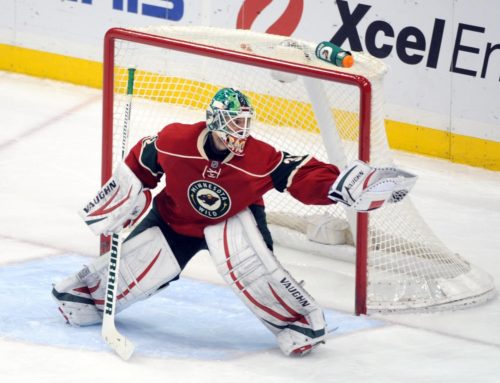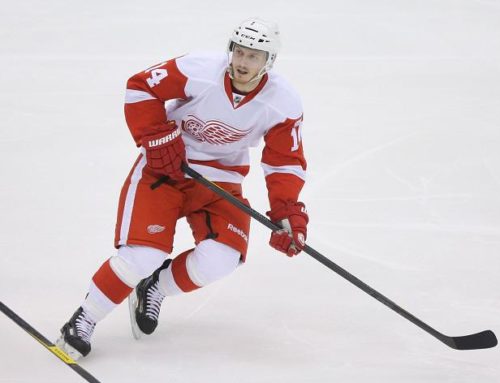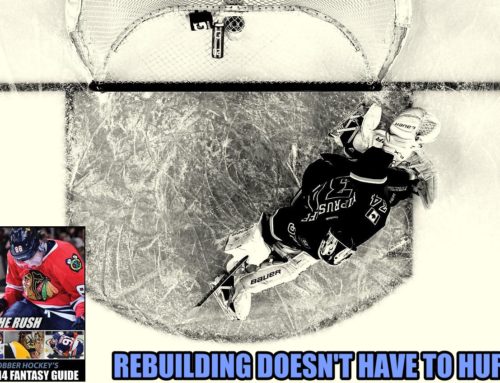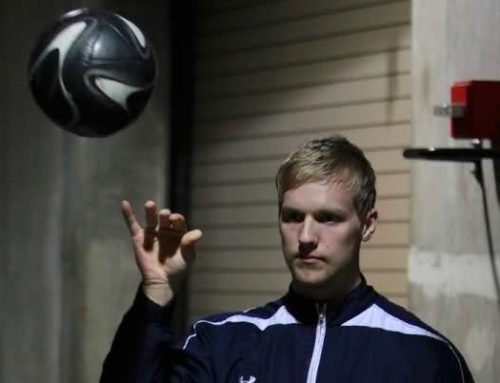
What are some of the best reasons to play fantasy hockey? What keeps people coming back for more? Read on for some more thoughts on the topic.
Why play fantasy hockey? Why build teams of players whose profession doesn't even really impact the real world? What attracts people of all ages, from 16 to 61 and beyond, to sit in front of a computer or TV in hopes of getting an edge? The "why" isn't often considered by the hard core players that make up the base of this website, but is a question asked by those who have never been a part of fantasy sports.
There are a bunch of reasons for playing, and they are all compelling to us personally. We each have our own story; our own loves of the game. I am going to try and give people who don't play fantasy sports a peak into our world. Who knows, they might like what they see. it is helpful to get a variety of viewpoints from people once in that same situation as an outsider and who decided to really get into the game of SHPs and H2H. Where better to go for this than the top? I have talked to three of the best fantasy hockey writers on Dobberhockey and, in my opinion, the internet in general: Michael Amato, Jeff Angus, and the founder himself, Darryl Dobbs.
To get some feedback from the other end of the spectrum, I have also talked to someone new to the scene. This is Scott's second year playing fantasy hockey and he is jumping in headfirst with a dynasty league (a league where you keep all of the players on your team year after year; it is generally considered more competitive).
Regardless of how fun it is when you are playing, or what you get out of the experience, there still has to be a reason to join that first league. The most crucial question here is… why start?
Family
Many people, I was somewhat surprised to find, had the same reason for starting. Their parents. Often, their parents would be fantasy hockey players, and as teenagers they would be invited to join a league. For example, Dobber started at fifteen by inviting himself and a friend to his parent's keeper league draft (which is different than a dynasty league in that only a certain number of players is kept from year to year). He said "[He] knew right then it was for [him]. The guesswork, the thrill of being right and the disappointment of being wrong." He hasn't looked back since.
If you have a family pool going on, don't worry about being in over your head… Just jump in, you might not look back either!
Friends
Another common occurrence is when your buddy invites you to his hockey pool. This is the case with Scott, who started playing fantasy sports. He started with fantasy basketball in 2010 when his friends in law school decided to make a league, and despite not following pro sports he joined. After moving, he decided to actually follow a sport and thus came to his senses, choosing hockey. If you have some interest in seeing what fantasy hockey is all about, talk with some of your friends and see if they play and maybe have a spot in their league.
Everyone from physicists and lawyers to personal trainers (such as senior writer Jeff Angus) and current professional athletes play fantasy hockey. As Michael Amato puts it, fantasy hockey is "simply a fun thing to do with friends".
Hockey
It makes sense right? If you love hockey, as Jeff Angus did and still does, "fantasy hockey is a natural extension of that". Short of becoming involved with an NHL team, fantasy hockey is one of the best ways to get more involved with hockey and the NHL. For those of you that love hockey, what is stopping you? Try out fantasy hockey. Even if you lose terribly for your first few years, or you decide to only draft players from the Toronto Maple Leafs (which is really the same thing), it is still fun cheering on your fantasy players as you are watching a real game. Fantasy hockey simply makes hockey better.
Even if you don't fit into one of those categories, fantasy hockey is a blast. Anything from an interest in statistics and sabermetrics to other fantasy sports to pure curiosity draws people to fantasy hockey. There are no wrong reasons.
What's so great about it?
With that first question answered, "Why start"?, the next question might deal with what makes fantasy hockey worth continuing. Some people might be hesitant to devote so much time to being behind a screen while others don't think being behind a screen is fun unless there are killstreaks involved. Luckily, for each reason not to play, there are many more reasons in favor of it.
Hockey
As mentioned earlier, fantasy hockey is great to do with friends and family, and enhances the hockey experience. It is a positive cycle; hockey is key to fantasy hockey, and fantasy hockey unlocks a lot of real hockey enjoyment. Jeff Angus believes that "you gain an appreciation for the sport on another level when you approach it as a fantasy manager as opposed to a casual fan".
The stereotypical hockey fan roots for one team and a few specific players. Other than the occasional big event, he or she often only watches one team. Fantasy hockey gives you a reason to cheer for individual players around the league. It is a reason to watch games you might not normally watch and to learn the intricacies of hockey. It helped Scott transition towards being a fan of the NHL from a hometown fan, and he now "regularly [watches] out of market games". Amato might put it best: "The fact that a bunch of hockey fans can compete against one another based on the results of NHL play should be very appealing to most supporters of the sport."
Strategy
Assuming there is a certain level of depth to your league, fantasy hockey is both incredibly strategic and social. Trading is something almost entirely unique to Fantasy sport, and one of the most challenging parts. How do you go about valuing a player versus a goalie? A draft pick versus a prospect versus a player? Three really good players versus one great player? There is no definite answer to any of the above questions, it completely depends on your specific league. Which means you have to figure things out for yourself, there is no guide to your specific league peculiarities. Trading is a fun challenge, but it isn't the only one. In deeper keeper leagues you have to decide whether to win now or later, and how to target the players who fit what you are trying to do. With such a variety of games that you can play, your strategy is always challenged and must stay fluid.
The Social Game
Once you have decided on a strategy and which players to try and trade for, you have to go about convincing the current owner to give up that player. That is difficult, as managers can become attached to players and know their potential all too well. You have to decide how to go about that. Do you start with a high asking price? Do you start with some general discussion on different players? Do you cut to the chase with a take it or leave it offer? Different managers respond differently to different techniques. The social game within fantasy hockey is fascinating, the psychology and sociology behind it deserves its own research paper!
Why do people keep coming back for more?
Those are really what gets a lot of people into hockey, but some other factors certainly make them stick around.
The People
Camraderie is a pretty cool aspect of leagues, and the banter is entertaining to say the least. There are some incredible people in fantasy hockey, and on this website in particular (see here).
The Research
For those that enjoy it, researching and scouting in depth can be quite rewarding. Scouring forums for mention of your unknown prospect, learning what Corsi Rel Qoc means… These things are simply the best for a lot of managers, including resident writer, Amato.
Being Better than the Best
You really think you can do a better job of managing a hockey team than Mike Milbury, or any other real-life manager? Prove it. Get better and better at fantasy hockey, show that you can draft better than a GM, join crazy-deep 30 team leagues. Some people, or at least Amato, think to themselves "I can build a better team than this." fantasy hockey allows you to begin to measure yourself against some of the greatest hockey minds.
All that being said, fantasy hockey may seem intimidating. It isn't in the slightest. The majority of managers are great to deal with, and even if you have no idea what you are doing, simply being active and doing the best you can yields results. Some wise advice from Scott: "don’t be afraid to make mistakes. That’s the only way to learn."
It is impossible to capture the love for this game, the benefits, all the unique stories and everything else in one article. It really is worth experiencing. If you want to hear more reasons to play, I encourage you to scroll down and read the comments. Please post if you have any questions, this is an amazing community and we would love to help you out. You can easily register to comment here. I also encourage those that do play fantasy hockey to post your reasons, your stories, so that others might discover this incredible game we all love.
Previously from Austin W:
Rebuilding to Contention: Part I
Rebuilding to Contention: Part II
Rebuilding to Contention: Part III
Rebuilding to Contention: Part IV
***
The DobberHockey 2013-14 Fantasy Guide is NOW AVAILABLE!
The beauty of an online (PDF) release, and what separates us from the competition, is that we are able to update the DobberHockey Guide throughout the rest of the summer and right up to puck drop in early October.
Other guides released in magazine format have to be written and submitted for publishing in late June with quick updates on free agency in early July.
As we all know, a lot can still happen in August and September. How about a strong training camp from a bubble player or a rookie? How about a late summer trade or signing?
The fantasy impact(s) of these moves can be significant, and we will have you covered.
Pick up the 2013-14 Fantasy Guide here.
Support the website and win your pool. I'd call that a win-win.
***






 UTA
UTA NYI
NYI BUF
BUF MIN
MIN CBJ
CBJ VAN
VAN
 WSH
WSH FLA
FLA
